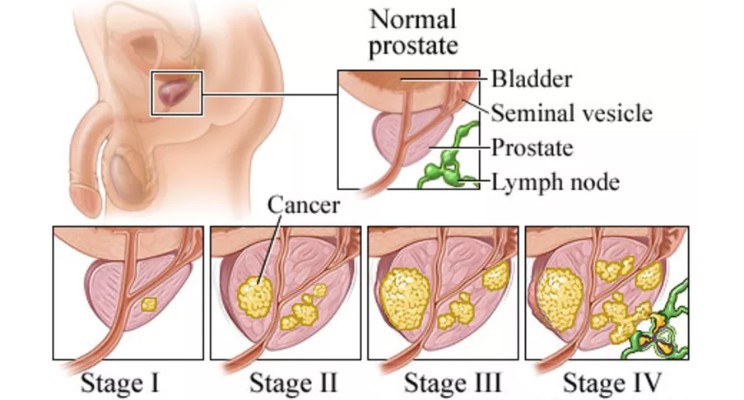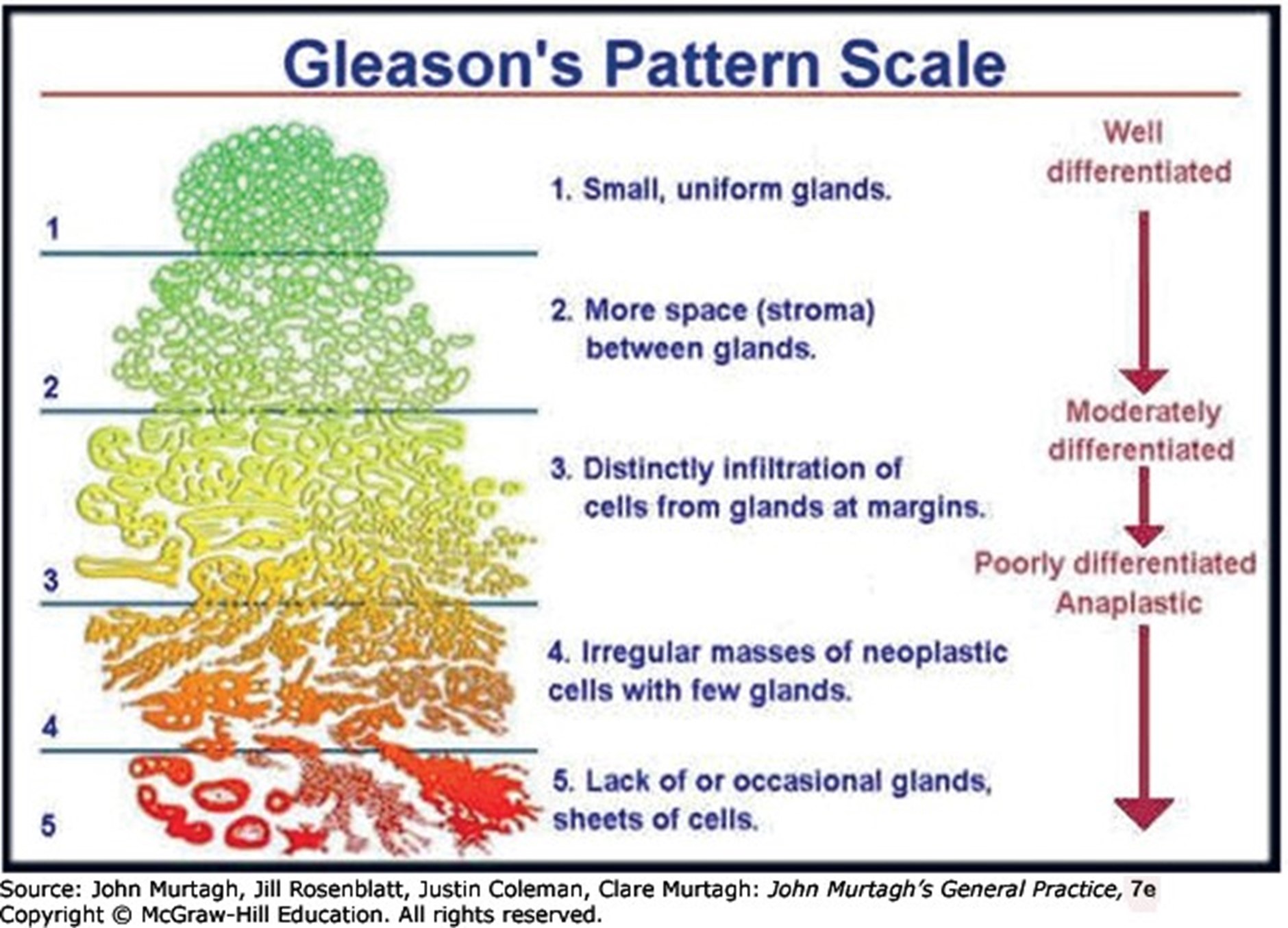
Prostate cancer is the second most common cancer in men with 11% of men diagnosed with it in their lifetime.
Risk factors for prostate cancer:
Family history of prostate cancer: First degree relative with PCa below 65 years of age.
Genetic mutations: Lynch syndrome (familial nonpolyposis colo-rectal cancer) and BRCA1 and two gene mutations.
Advanced age: At the age of 50, 30 % of male were found to have prostate cancer and 70% at the age of 70 on autopsy data of patients that died of other (not PCa) causes. This number increases further with age.
Race: Black patient have higher risk of getting prostate cancer at a younger age at the disease tends to be more aggressive.
Screening for prostate cancer:
Higher risk groups can start screening at the age of 40 and lower risk groups at age 45 to 50.
Ways to detect prostate cancer:
PSA is a blood test that may indicate and early prostate cancer. A PSA test can pick-up a prostate cancer very early, but a high PSA does not always mean there is PCa. It can be raised by other conditions affecting the prostate such as infection, catheterisation, procedures, bicycle riding and ejaculation in some cases.
Other ways of detecting are:
- Digital rectal examination
- Histology from prostate resection or
- Prostate MRI.
Diagnosing prostate cancer:
If there is a suggestion of PCa by the PSA, Rectal examination, or MRI then a prostate biopsy must be performed to confirm the diagnosis of possible PCa.
This is usually done in theatre and involves ultrasound guided needle biopsies of the prostate via a perineal route.
Staging and grading of prostate cancer:
Staging tells us where the cancer is situated. Confined to the prostate, locally advanced, or spread to further away, distant sites.
Grading consists of the character of the cancer cell type and tells us how aggressive the cancer is. The Gleason pattern scale is used for this purpose.

Treatment of prostate cancer:
The options for treatment range from watchful waiting and active surveillance which involves no intervention to more aggressive treatments.
For an early-stage curable prostate cancer I perform a radical robotic assisted laparoscopic prostatectomy.
In some cases, brachytherapy (Radiotherapy applied via radio-active 'seeds' at the cancer source itself) is also performed. Usually for lower risk cancers in elderly patients without prostate enlargement.
Advanced stage prostate cancers are treated with hormone suppression and other treatments.
Prostate cancer outcomes:
This depends on the stage at which the prostate cancer is diagnosed.
If the cancer is still confined to the prostate with no distant spread, there is no immediate threat of dying of PCa. The five-year cancer specific survival is 100%.
Early treatment will, however, prevent disease progression and mortality in the long term.
For PCa that has spread already to distant sites the cancer specific survival is only 31 percent over five years. In other words, after five years two in three patients would have died of prostate cancer in this group.
It is therefore important to diagnose and treat a prostate cancer early in a patient with a good life expectancy. This generally refers to good life expectancy.
Diagnosing and treating prostate cancer in the very elderly or ill patients becomes less important.
Source: Up to date, Wolters Kluwer.

